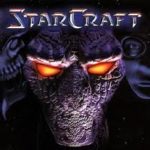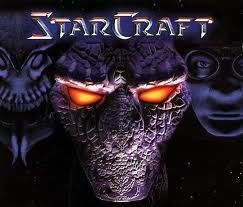
Playing the real-time strategy video game StarCraft isn’t just for frittering away afternoons in students’ dorm rooms. It’s now for college credit, too.
University of Florida (UF) education technology doctoral student Nathaniel Poling is teaching the eight-week, two-credit class, “21st Century Skills in StarCraft,” this fall, using the internationally beloved computer game to hone students’ on-the-go decision making skills, resource management skills, and penchant to analyze ever-changing scenarios in the complex game’s platform.
Poling’s course will be conducted entirely online and is limited to 20 students who have, at the very least, “basic knowledge” of StarCraft, a game that pits three species battling for supremacy in the far reaches of the Milky Way Galaxy.
The StarCraft course doesn’t offer a step-by-step strategy for mastering the game—which has sold more than 11 million copies since its release in 1998—but it helps students develop skills that would serve them well in the modern workplace, according to Poling’s class outline.
The class isn’t all about video game analysis, however. Poling’s students will be required to complete weekly game play that will be viewed and scrutinized by classmates looking for the best ways to adjust strategies on the fly and beat opponents who were slow to adapt or doomed by a misconceived plan.
“In this course, learners are in an immersive real-time environment,” Poling said in a Sept. 2 UF blog post. “They are constantly forced to gather, analyze, and synthesize information from a wide variety of sources and act in a high-pressured, fast-paced environment.” Those are the same skills that employers covet in today’s information-based economy, the thinking goes.
Poling, who did not respond to several eCampus News interview requests, said in the UF blog post that his class would not train students to embrace their future professions as a real-life version of StarCraft. His course plan includes written assignments and group work.
“It’s not treating the real world as the game,” he said. “You’re using the StarCraft concepts that you’ve learned to inform your professional practice.”
Advocates of education technology said the instructors of video game-based college courses should expect a fair amount of skepticism and criticism from campus traditionalists, but they hoped Poling would use the right balance of game play and academic rigor to create a class others could replicate.
“[Poling’s] approach could be perfectly legitimate, possibly brilliant, depending on how he pulls it off,” said Nicolas Nelson, an adjunct assistant professor at Hope International University in Fullerton, Calif. “If the academic content of the course is excellent, and the game theory of StarCraft really does convey that content well, then so far so good.”
Ray Schroeder, director of the University of Illinois Springfield’s Center for Online Learning, Research, and Services and a leading technology advocate in higher education, said Poling’s course could appeal to other institutions if it, in part, didn’t “require a steep learning curve” and was accessible to more than the most avid StarCraft gamers.
“Building upon the success of StarCraft, the University of Florida can leverage the stable technology, wide array of features, and popularity,” Schroeder said. “It is a proven platform. I also expect that the use of this platform will excite and engage students.”
UF’s StarCraft course is not the first. Students at the University of California, Berkeley, took a StarCraft class in January 2009 that required knowledge of calculus and “differential equations,” according to the university’s course description.
Any credit-bearing college class based on a video game would have to show skeptics its pedagogical teeth before it’s taken seriously and draws the interest of students who haven’t invested countless hours in perfecting StarCraft strategies, Nelson said.
“For this to be a really powerful, easily defensible, creative approach to pedagogy, Poling and his supporters need to defend this course” with legitimate academic work, he said.
Koichi Ko, a blogger and business and marketing consultant, wrote in a Sept. 4 blog post that college graduates who have learned the lessons from StarCraft battle scenarios would make appealing job candidates for any employer, especially startup companies that require constant adaptation as they carve a niche in the marketplace.
“If there’s one thing that I want in people who work with/for me, it’s that they should be totally obsessed with getting better,” Ko wrote. “It’s naive to assume that people should already be good at everything. You won’t find people like that. … Good StarCraft players watch replays to see what they did wrong and, more importantly, what the other guy did right. Then, they hone their craft and do better the next time.”
Ko continued: “In a startup [business], that’s [got to] be one of the best traits an employee can have. If all your employees are as obsessed with improvement as ‘good’ StarCraft players are, then you’re going to be in good shape.”
- Research: Social media has negative impact on academic performance - April 2, 2020
- Number 1: Social media has negative impact on academic performance - December 31, 2014
- 6 reasons campus networks must change - September 30, 2014
